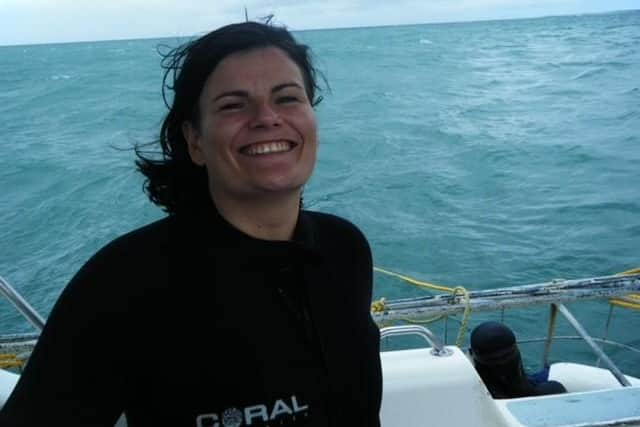Third of people with MS keep the condition a secret over fears of pity and discrimination, charity says
The MS Society encouraged people to share their stories in the hope of supporting others, ahead of MS week from Monday.
A survey by the MS Society of 800 people living with the condition showed 35 per cent keep it a secret.
Advertisement
Hide AdAdvertisement
Hide AdOf those, one in ten had not told their partner, and almost 60 per cent said they had not told colleagues.


Asked why they did not tell people about the condition, 74 per cent said talking about it made them nervous.
More than half were worried people would feel sorry for them, some 37 per cent feared discrimination, and 40 per cent said they thought it might impact their career.
Morna Simpkins, director of MS Society Scotland said: "We hope that, by sharing their own stories, people who are happy to speak openly can offer others in a similar situation something they identify with. And by raising the profile of MS, we can increase understanding among those with no experience of MS.
“Care and support services have been affected by Covid-19, so it’s more important than ever that people living with MS can access advice, peer support and information.”
More than 15,000 people in Scotland have MS, which causes nerve damage and can make it harder to do everyday things like walk, talk, eat and think.
Kirsty Dinneen, 49 from Edinburgh, is a data analyst and was diagnosed with relapsing MS in 2017.
She is open about her condition, and said she prefers people to ask questions about it if they are curious.
Advertisement
Hide AdAdvertisement
Hide Ad“It drives conversation and it drives awareness and that’s something I’m keen to do that with MS,” she said.
"I know I didn’t know much when I was diagnosed. I only knew the bad stories and if that’s all you know then it’s really scary. But if you can see the positive outcomes or that you can continue to live your life then that’s reassuring.
“That’s one of the reasons I’ve always chosen to be so open about how things affect me.”
She added: “I try to just accept that MS is a part of my and my family’s life. I try really hard not to be afraid of it, but it does colour a lot of how you think. One of my constant battles is trying to counteract that. It’s about trying to accept it without letting it define you.
“Admittedly I did struggle and it’s been four years and I still struggle on a daily basis. I get frustrated that I can’t see past it. All you can do is look for something that works for you and, for me, part of that is talking about it.
“It’s also really important that people don’t think MS makes you a no-go area. It doesn’t make you someone to avoid and it’s not something you can catch.
“There are quite a lot of people that I’ve discovered recently who have MS, but choose not to be public about it which I totally respect. They’ve revealed themselves to me and that’s reassuring as they’re hugely successful people, living a typical life.”
A message from the Editor:
Thank you for reading this article. We're more reliant on your support than ever as the shift in consumer habits brought about by coronavirus impacts our advertisers.
If you haven't already, please consider supporting our trusted, fact-checked journalism by taking out a digital subscription.
Comments
Want to join the conversation? Please or to comment on this article.